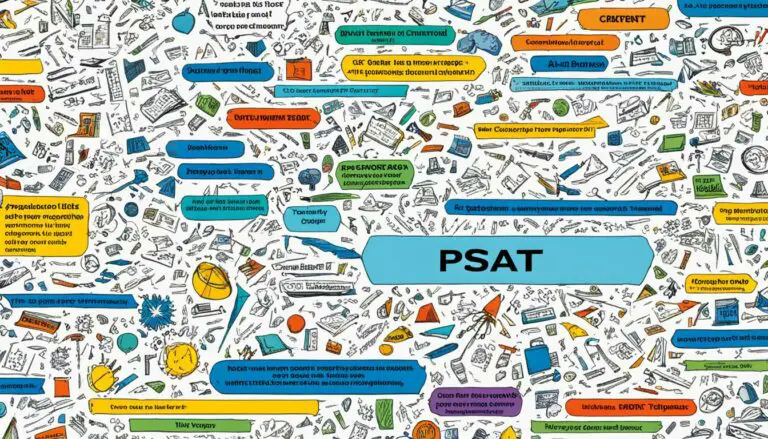CBSE vs ICSE: A Comparative Analysis of Indian School Education
Regarding the Indian education system, two of the most well-known boards are the CBSE and the ICSE. The Indian government recognizes both CBSE and ICSE and provides education for students from primary to senior secondary levels.
Central Board of Secondary Education (CBSE)
CBSE is a national-level board controlled and managed by the Union Government of India. It is responsible for conducting exams for students up to Class XII.
It was established in 1962 and has its headquarters in Delhi. CBSE aims to provide a holistic education to students and focuses on developing analytical skills and problem-solving abilities.
CBSE provides students with a variety of subjects and follows a curriculum that aims to strike a balance between academics and extracurricular activities.
Furthermore, the board provides support and direction to schools and educators to guarantee that students attain a top-notch education.
Council for the Indian School Certificate Examinations (ICSE)
ICSE is a private, non-governmental board that was established in 1958. It is responsible for conducting exams for students up to Class XII. The board is based in Delhi and uses a carefully crafted curriculum to offer students a well-rounded education.
The ICSE strives to offer a well-rounded education, encompassing not only academic learning but also co-curricular activities and essential life skills.
This educational board provides a diverse array of subjects to students and employs a curriculum specifically crafted to nurture critical thinking and problem-solving abilities.
In terms of curriculum, CBSE is known to be more focused on science and mathematics, while ICSE is known to be more comprehensive and includes a broader range of subjects.
CBSE also follows a more centralized approach, while ICSE offers more flexibility to schools and teachers.
Curriculum and Syllabus
CBSE Curriculum
The Central Board of Secondary Education (CBSE) oversees the educational syllabus for students up to Class 12.
This curriculum, crafted by the National Council of Educational Research and Training (NCERT), is consistently updated to stay aligned with the evolving educational environment.
CBSE’s curriculum is renowned for its clarity and simplicity, emphasizing the development of a solid groundwork in fundamental subjects like Mathematics, Science, Social Science, and English for students.
🌟 Hey Students! 🚀 Ready for the ultimate experience? Join us on Studentsinside.com's Facebook, YouTube, WhatsApp, and LinkedIn. Click now for tips, fun, and success vibes! 🌈✨ #StudentLife #JoinUs
In addition to the core subjects, the CBSE curriculum also includes elective subjects such as Agriculture, Home Science, and more.
The curriculum for primary and secondary classes is designed to provide students with a strong foundation in all subjects.
In contrast, the senior secondary curriculum focuses more on preparing students for higher education and future career opportunities.
ICSE Curriculum
The ICSE is another popular educational board in India that administers Secondary and Higher Secondary Education.
The ICSE curriculum is designed to provide students with a comprehensive education that includes various subjects, including Languages, Mathematics, Science, Social Science, and more.
The ICSE curriculum is known for being more detailed and comprehensive than the CBSE curriculum, with a focus on providing students with a strong foundation in all subjects.
In the curriculum, students can select from a range of elective courses, such as Arts and Home Science, which allows them to explore their passions and develop expertise in diverse fields.
Assessment and Grading System
CBSE Assessment
CBSE follows a linear grading system for the assessment and evaluation of students. The board conducts external board exams for classes 10 and 12, considered the final exams. The marking scheme is based on a combination of theoretical concepts and practicals.
The board allows students to choose their preferred language as the medium of instruction. However, the marking scheme is the same for all languages.
Internal assessments are conducted throughout the academic year.
These assessments include periodic tests, unit tests, and practicals. The weightage of internal assessments varies from subject to subject. The final result of the student is based on the combined score of internal assessments and board exams.
ICSE Assessment
ICSE offers a holistic grading system for the assessment and evaluation of students. The board conducts external board exams for classes 10 and 12, considered the final exams.
The marking scheme is based on a combination of theoretical concepts and practicals. The board offers a choice of languages as the medium of instruction. The marking scheme is different for different languages.
Internal assessments are conducted throughout the academic year. These assessments include periodic tests, unit tests, projects, and practicals.
The weightage of internal assessments varies from subject to subject. The final result of the student is based on the combined score of internal assessments and board exams.
Advantages and Disadvantages
Pros and Cons of CBSE
CBSE (Central Board of Secondary Education) is one of the most popular education systems in India.
Most universities and colleges in India recognize it, and it is widely accepted. Here are some of the advantages and disadvantages of CBSE:
Pros
- CBSE is a well-structured and organized education system.
- CBSE syllabus is designed to provide a strong foundation in mathematics and science.
- CBSE syllabus is uniform across all schools in India, making it easier for students to move from one school to another.
- CBSE conducts several competitive exams like JEE, NEET, etc., based on the CBSE syllabus.
- CBSE provides students with a good balance of academics and extracurricular activities.
Cons
- CBSE syllabus is considered to be more difficult than other education systems like ICSE.
- CBSE syllabus is not as flexible as other education systems, making it difficult for students to pursue their interests.
- CBSE syllabus is based on rote learning, which may only be suitable for some students.
- The scoring system in CBSE is based on a bell curve, which means that the average score is around 60%, making it difficult for students to score high marks.
Pros and Cons of ICSE
ICSE (Indian Certificate of Secondary Education) is another popular education system in India.
Most universities and colleges in India recognize it, and it is widely accepted. Here are some of the advantages and disadvantages of ICSE:
Pros
- ICSE syllabus is designed to provide a strong foundation in all subjects, including languages, mathematics, science, and social studies.
- ICSE syllabus is more flexible than CBSE, allowing students to pursue their interests and talents.
- ICSE syllabus is based on practical learning, making it easier for students to understand concepts.
- The scoring system in ICSE is based on absolute marking, which means that students are awarded marks based on their performance.
Cons
- The ICSE curriculum is often regarded as more challenging compared to the CBSE curriculum, which can pose a challenge for certain students.
- ICSE syllabus is not uniform across all schools in India, making it difficult for students to move from one school to another.
- ICSE syllabus is not as structured as CBSE, making it difficult for students to prepare for competitive exams.
- ICSE syllabus is less widely recognized than CBSE, making it difficult for students to get admission to some universities and colleges in India.
Preparation for Competitive Exams
Preparing for competitive exams is one of the major concerns of students and parents alike.
Both CBSE and ICSE boards aim to prepare students for these exams, but there are some differences in their approaches.
CBSE and Competitive Exams
CBSE board has a syllabus that is more focused on theoretical knowledge and application-based questions.
This way of learning helps students get good at their subjects and ready for big exams like JEE and NEET. Plus, the school offers lots of chances to join in on competitive exams and Olympiads.
However, the CBSE board is criticized for its lenient marking scheme, which may not prepare students for the tough competition they will face in these exams.
Also, the ICSE board’s syllabus is less extensive than the board’s, which may put CBSE students at a disadvantage in some exams.
ICSE and Competitive Exams
ICSE board has a syllabus that is more extensive and challenging than the CBSE board. The board aims to develop students’ analytical and critical thinking skills, which are essential for competitive exams.
The board’s syllabus is designed to provide a deeper understanding of the subjects and prepare students for exams like JEE and NEET.
ICSE board also provides ample opportunities for students to participate in competitive exams and Olympiads. However, the board’s syllabus is more demanding, which may put extra pressure on students.
Also, the board’s approach to education may only suit some, as it emphasizes practical knowledge over theoretical knowledge.
Language and Teaching Methodology
CBSE Teaching Methodology
CBSE Board is known for its examination-oriented approach and focuses more on theoretical knowledge.
They emphasize textbooks and exam syllabus, which makes it easier for students to prepare for exams.
The medium of instruction in CBSE is predominantly English, and the board offers a wide range of languages to choose from as a second language.
However, the board needs to improve its teaching technique compared to the ICSE Board.
ICSE Teaching Methodology
On the flip side, ICSE dives deep into English Literature and Language. They want students to learn by doing and using what they know, which makes their language skills grow.
ICSE Board is more flexible regarding the syllabus, offering a balanced curriculum that includes Art, Language, Science, Mathematics, and Humanities.
The board uses interactive teaching methods and emphasizes projects, presentations, and practical skills.
Global Recognition and Acceptance
Regarding global recognition and acceptance, both CBSE and ICSE have gained popularity and acceptance worldwide. Let’s take a closer look at the recognition and acceptance of both boards.
CBSE Recognition
The Indian government recognizes CBSE and is a popular choice for Indian students. However, it is also recognized by many foreign schools and universities.
CBSE has gained recognition in countries like the UAE, Singapore, and Saudi Arabia. Many foreign universities accept CBSE scores for admission purposes.
In addition, CBSE students can also take standardized tests like TOEFL and GRE to pursue higher education abroad.
CBSE curriculum is also recognized by the University of Cambridge International Examinations (CIE) and the International General Certificate of Secondary Education (IGCSE).
ICSE Recognition
Similar to CBSE, ICSE is recognized by the Indian government and is widely accepted in India. However, it is also recognized by many foreign schools and universities.
ICSE has gained recognition in countries like the UAE, Singapore, and Saudi Arabia. Many foreign universities accept ICSE scores for admission purposes.
ICSE students can also take standardized tests like TOEFL and GRE to pursue higher education abroad.
ICSE curriculum is also recognized by the University of Cambridge International Examinations (CIE) and the International General Certificate of Secondary Education (IGCSE).
Impact of New Education Policy
The New Education Policy (NEP) was introduced by the Government of India in 2020 to transform the education system in the country.
The policy has a significant impact on both CBSE and ICSE boards. Here are some of the fundamental changes brought about by the NEP and their effects on the two boards:
Flexibility in Choice of Subjects
The NEP provides students with greater flexibility in choosing their subjects. Students can choose subjects across different streams, including science, commerce, and humanities.
This is likely to benefit students of both CBSE and ICSE boards, as it allows them to pursue their interests and passions.
Emphasis on Multilingualism
The NEP emphasizes the importance of multilingualism and encourages schools to teach students in their mother tongue or regional language.
This is likely to benefit students of both CBSE and ICSE boards, as it promotes the use of regional languages and helps preserve cultural diversity.
Focus on Vocational Education
The NEP places a greater emphasis on vocational education and encourages schools to offer vocational courses.
This is likely to benefit students of both CBSE and ICSE boards, as it provides them with practical skills that are relevant to the job market.
Changes in Assessment
The NEP recommends changes in the assessment system, focusing on formative assessment and reducing the emphasis on board exams.
This will likely benefit students of both CBSE and ICSE boards, as it reduces the stress associated with board exams and encourages continuous learning.
Integration of Technology
The New Education Policy (NEP) promotes incorporating technology into education and suggests utilizing digital tools and platforms.
This is expected to be advantageous for students enrolled in both CBSE and ICSE boards because it grants them access to a broader array of resources, ultimately enriching their educational journey.








